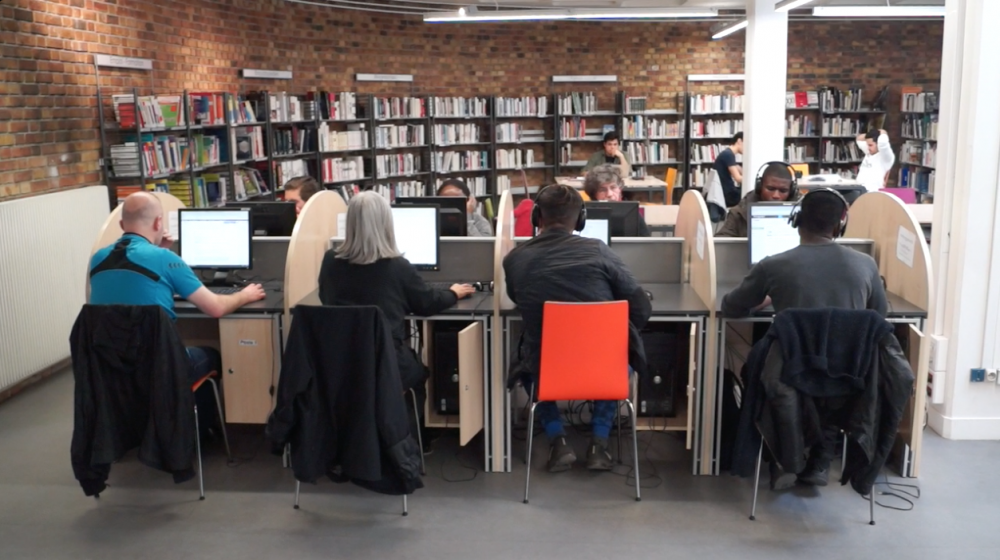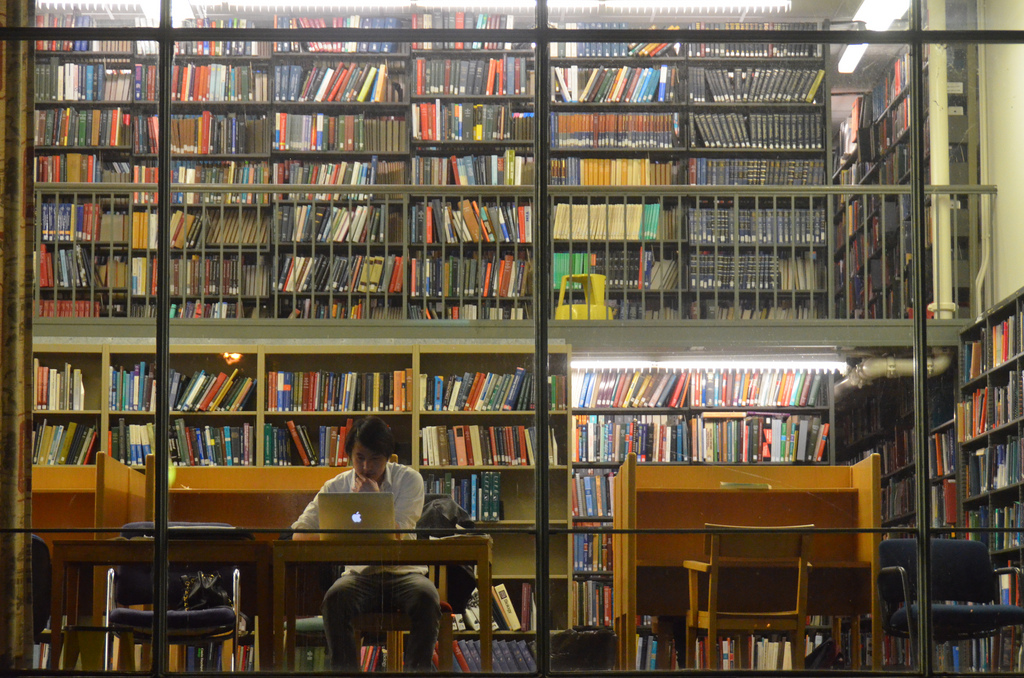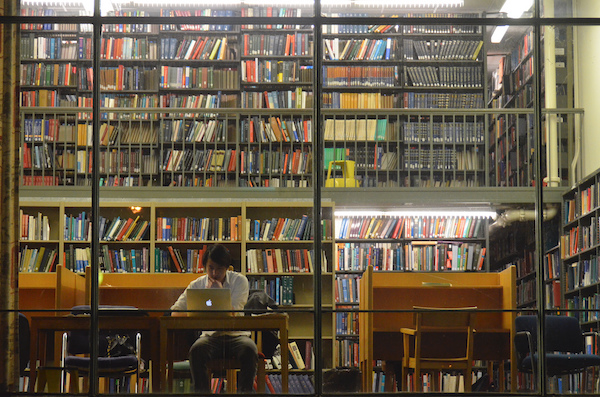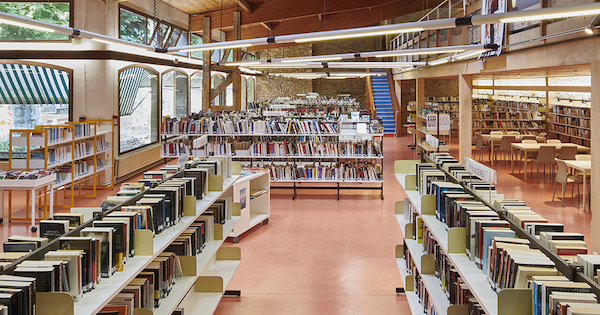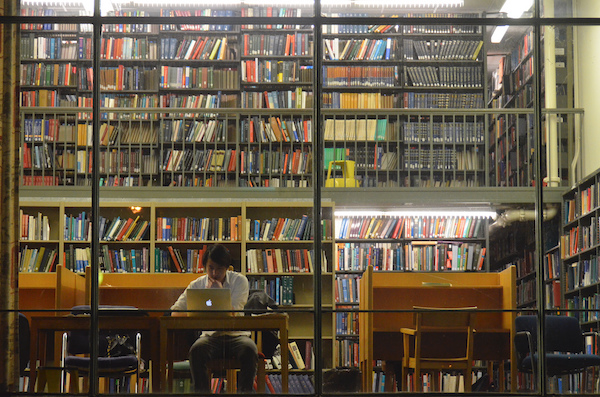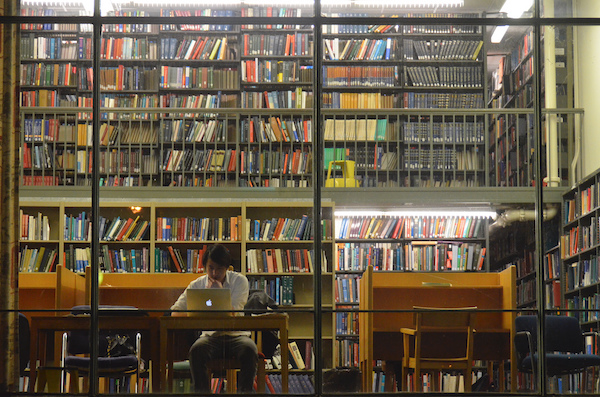Foreword
Following on from the Ministry of Culture's 2018 Libraries plan, which assigned libraries the mission of "promoting digital inclusion and actions carried out in the social field", the law on libraries adopted in 2021 explicitly states that they contribute to "reducing illiteracy".
Reaching out to a wide range of audiences (young people, the elderly, parents, etc.), with their social and cultural outreach skills, and equipped with open-access computers and digital resources, libraries have a number of advantages when it comes to supporting the public towards digital empowerment. With their nationwide presence, equipment and digital resources, they also enjoy an excellent public image. As the 2023 edition of the Digital Barometer shows, libraries and media libraries are clearly identified by the public as places where they can provide digital support.
Although library professionals have been practicing digital mediation for many years, they are still wondering about its scope ("how far to go"), and about their positioning and visibility within the digital inclusion ecosystem. A recent survey conducted by the Association des bibliothécaires de France sheds light on the specific nature of libraries within this ecosystem.
Faced with the irruption of generative artificial intelligence, library professionals are questioning their role and the place of AI in the library world. To what extent can AI become an ally of learning? How will its mediation missions change? What new skills? How can we train for these new, constantly evolving practices?
Libraries are also preparing to minimize the ecological impact of their digital services, whether in terms of hardware (public computer workstations, video game consoles, tablets, e-readers) or software (online catalogs, portals, online resources). More and more of them are committing themselves to digital sobriety, by making changes to their own operations and raising awareness among their audiences.
Libraries and media libraries clearly identified by the public as places where people can learn about digital technology
In the2023 edition of the Digital Barometer, ANCT has introduced a question to better understand their expectations in terms of support: "There are places in the area where you can get help with online procedures and digital learning. Do you know of a place near you that offers digital support?
Town halls (33% of responses) and libraries (32%) are cited as the top places " offering digital support".
Town halls are ahead of libraries for all age groups (except 12-17 year-olds), all socio-professional categories, all levels of education and all urban areas. It's also true that a large number of local authorities provide free access to computers or interactive terminals to help users complete their administrative formalities. In addition to this digital access, users are often accompanied by a town hall secretary, mediator or digital advisor to help them get to grips with digital tools and understand how they work.
Référence :
The 12-17 age group tends to prefer libraries.
An INJEP survey highlighted the appeal of digital library services to teenagers. " For many of them, it's less a question of accessing collections than of benefiting from a space... Adolescents travel, sometimes far, to go to a library where they can concentrate and feel they are in the midst of other young people driven by the same motivations". According to the authors of the survey, "the arrival of digital practices in libraries has triggered or accompanied a change in libraries, not only in terms of what they offer teenagers, but also in terms of the spaces made available to them. The practices of teenagers are thus taken into account to a greater extent".
Référence :
At the forefront of the digital divide
With many procedures now digitalized, and no alternative or sufficient support available, vulnerable groups, and more generally people who are far removed from the digital world, tend to turn to local players (town halls, social centers, CCAS, etc.) or solidarity players (such as Emmaüs, the Red Cross, Secours Populaire or Secours Catholique) to find the help they need. These people sometimes turn to libraries and media libraries.
The Ministry of Culture's 2018 Libraries plan had taken note of this situation. "Actors in social inclusion, they promote digital inclusion and actions carried out in the social field".
In 2018, the Association des directrices et directeurs des bibliothèques municipales et groupements intercommunaux des villes de France (ADBGV) devoted its annual study day to the theme " Digital and inclusion in libraries: how far can we go?". How can we meet the needs created by the digital boom? What is the role of the library in a local digital inclusion policy? How far can we go? Can we meet all the needs created by the rise of dematerialization and e-administration? How can we complement each other within cities?
In 2020, the Bulletin des Bibliothèques de France devoted a special report to digital inclusion practices and systems in libraries, with a wealth of experience and case studies.
In 2021, the law on libraries and the development of public reading broadens the missions of libraries: "they contribute to the reduction of illiteracy and illiteracy. Through their mediation activities, they guarantee the participation and diversification of the public and the exercise of their cultural rights".
In fact, libraries were one of the potential locations for the 4,000 Digital Advisors recruited under the Recovery Plan.
What is the specific nature of digital mediation in libraries?
At a time when the French government is setting up Espaces France Services (EFS) to help with administrative formalities, and deploying 4,000 Digital Advisors to provide digital mediation services nationwide, libraries are questioning their positioning, complementarity and visibility in the evolving ecosystem of digital inclusion.
The Digital Commission of the Association des Bibliothécaires de France (ABF) conducted a survey of 37 digital mediators working in libraries.
While the majority of them declare that they are legitimate to carry out this mediation activity, several express "the need to question oneself often, to train continuously, and even to accept learning through failure", or express reservations " distinguishing between cultural support and social and administrative support ".
"In the library, too, the mission of helping people to become autonomous is important, as is passing on good practice and basic computer skills. It's more a question of learning assistance and solving technology-related problems than of technical troubleshooting per se".
This mission " goes hand in hand with a mission to raise awareness or pass on a digital culture, involving the library's digital resources, digital creation workshops (Fablab, robotics programming, CAM, video game creation, etc.), and media and information literacy".
They also specify that their mission is to train other library staff, with a view to sharing the foundations of a common digital culture.
How far can we go?
Administrative procedures are mostly mentioned as "out of scope". However, this view is not unanimous: " The missions of a digital mediator are to welcome the public, offer personalized appointments and group workshops on digital issues. For me, the digital world is vast, and should include help with administrative procedures as well as digital leisure activities".
Many of them point out that they are first and foremost librarians, and that digital is only one aspect of their job. They don't just do digital mediation, but "more generally, cultural mediation. For example, they offer read-alouds, creative workshops, board game activities and mediation of collections other than digital ones".
While they consider the level of technical resources to be generally good, many point to the absence of a WIFI network in some cases, and to security devices that are not always compatible with the activities.
When asked about the activities of digital mediators working outside libraries, they consider that they tend to deal with requests linked to the resolution of a technical or administrative problem (access to rights, access to healthcare, etc.). Outside libraries, they see the approach as essentially pragmatic, linked to an often urgent need, "whereas in libraries, we build up a broader range of services enabling the public to find answers to a need, but also to discover services enabling them to acculturate more generally to the digital world".
Asked to imagine the digital mediation of tomorrow, they believe that "digital mediation will evolve towards increased media awareness and the development of critical thinking, to enable people to sort things out, put things into context, raise awareness and develop a critical eye ", that "partnerships with other digital players in the same territory will develop, which could position digital mediators in libraries more on animation and training tasks related to creative and cultural digital than on troubleshooting tasks ".
Référence :
Are libraries ready for artificial intelligence?
Faced with the irruption of generative artificial intelligence, librarians are questioning their role and the place of AI in the library world.
On November 7, 2023, the Bibliothèque publique d'information (Bpi) of the Centre Pompidou and the Service du Livre et de la Lecture of the French Ministry of Culture organized a study day: Are libraries ready for artificial intelligence?
"The question of the reception and use of artificial intelligence is an acute one for teachers and libraries. Can AI become an ally in learning, including media and information literacy? How can mediators be trained in these new, constantly evolving practices, so that AI uses are beneficial to all, for reasoned appropriation in a context where fact-checking seems increasingly complex?"
The École nationale supérieure des sciences de l'information et des bibliothèques (Enssib), for its part, had devoted a day on May 11, 2023, to exploring the links between AI and the world of libraries.
For the profession, AI implies a change in its mediation missions and new skills. It :
- "It requires knowledge of research, management and conservation;
- generates information, text or images, which must be verified and validated, so it requires skills in data analysis, knowing how to detect works or authors created by an AI ;
- requires expertise in using these tools, like the engineer prompt, expert in using AI chatbots like ChatGPT".
AI can also help librarians to analyze and exploit massive amounts of data. "AI is a new challenge that calls for change, just as it did with the arrival of the Internet and then social networks".
According to the speakers, several points of vigilance emerge regarding the use of AI in libraries. "It's important that it remains a set of tools at the service of humans; raising awareness among professionals and the public must be done with this in mind. Their development requires not only skills and IT expertise that are still rare, but also long reflection and wide consultation with professionals. Indeed, their development and evolution remain highly complex. Last but not least, ethical issues are an important part of the debate, given that AIs are being driven by the world's poorest populations, and that they remain carbon-intensive because they require energy-intensive infrastructures".
Few librarians seem to be directly involved in AI projects today, apart from those at the Bibliothèque nationale de France (BnF). " A fear seems to be emerging, repeating the one provoked by the arrival of the Internet and search engines: could AI replace librarians? While this hypothesis is unlikely, given that humans are necessary for the deployment of AI, information professionals and librarians will have to become acculturated to the idea, which is no longer the preserve of a small circle of insiders. Librarians still have certain strengths: human relations, expertise, judgment and mediation.
In view of libraries' public service mission, and their commitment to the common good, David Lankes Professor of Library Science at the University of Texas advocates an active posture for librarians in the face of AI, and sets out three interconnected areas in which they must develop their skills: data, algorithms and machine learning. "Literacy in data, ontologies and taxonomies, in-depth understanding of inductive algorithms, the ability to evaluate and manage machine learning processes, and analysis of legal and political issues will enable library professionals to take a direct part in the development and regulatory processes of the AI ecosystem. There, they will assume - for the benefit of users - an advocacy role for interpretable AI that respects ethical principles, fairness and representativeness, and guarantees the fairness and transparency of algorithmic models, public and private data used and content produced." For David Lankes, it's above all a question of the profession not simply reacting to AI, " but seizing it as an object of public policy".
Références :
85% of French people have a library in their commune of residence
The result of a collaboration between the Centre national de la recherche scientifique (CNRS) and the Livre et Lecture department of the French Ministry of Culture, an Atlas maps for the first time, in a precise manner and according to various criteria, the 15,500 reading venues throughout mainland France and its overseas territories. In particular, it provides information on the distribution of the offer, and its proximity to the population...
"The 15,500 libraries and book access points enable 85% of the French population to access this cultural service in their commune of residence. On average, France has 23 reading establishments per 100,000 inhabitants. Urban communities have more reading facilities (nine out of 10). However, a third of rural communities have a public reading facility, serving almost 22% of the French population. The distribution of public libraries throughout metropolitan France and the French overseas territories offers remarkable coverage of the territory and close access to the population".
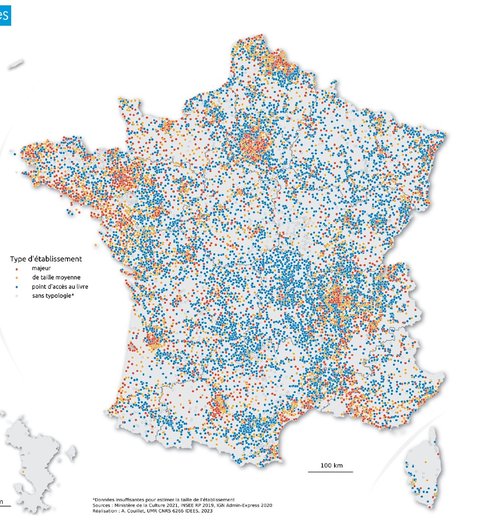
"The location of facilities is closely linked to population density: major and medium-sized establishments are generally located in the most densely populated and urbanized areas of France and the French overseas territories; less densely populated areas (very rural areas, mountainous areas, or inland areas in the French overseas territories as opposed to coastal areas) are home to fewer public reading establishments".
However, the quality of the service offered may differ within a region, depending on their location
"The city ecosystem, which concentrates and polarizes economic, cultural, educational and institutional players, encourages more partnerships, and libraries serve larger populations. Conversely, people living in rural areas are less well served, even though libraries in France offer this cultural service to 66% of rural dwellers in their commune of residence".
Described as the leading local cultural establishment, libraries are not always accessible within 10 minutes (by car) for part of the population. Thus, " throughout France, 2.2 million people do not have access to a library within a 10-minute drive ", according to the Atlas.
Référence :
Differences in IT equipment depending on whether libraries are located in urban or rural areas
The Atlas des bibliothèques territoriales also sheds light on the quality of libraries' IT equipment. Four criteria are simultaneously present in a public reading establishment, making it possible to observe the quality of their level of IT equipment: website, online catalog, WiFi access and connected computers.
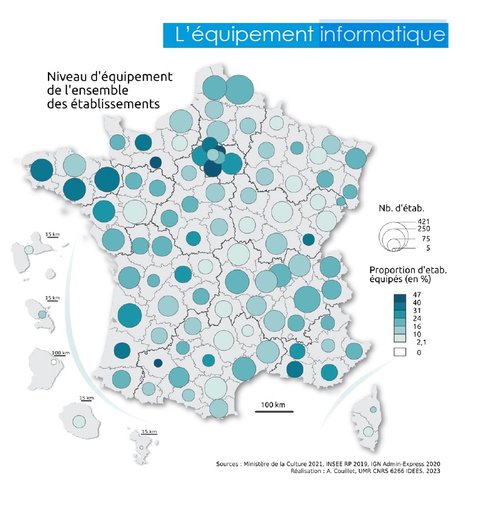
"The high levels of IT equipment in public reading establishments in each département are rarely linked to the presence of a large number of libraries in the département. Perhaps it's more a question of a political commitment on the part of local authorities to the development of IT for the benefit of library users and residents alike", observe the authors of the Atlas.
"There is still room for improvement in library IT equipment, as half of French départements have fewer than 17% of libraries equipped".
"Generally speaking, in rural areas, the number of computerized libraries is low: half of all départements have fewer than 12% of rural libraries equipped.
The authors of the Atlas emphasize the role of departmental libraries, many of which are part of the "Bibliothèques numériques de référence" (BNR) program, providing digital resources to their rural networks.
Six out of ten libraries offer digital resources
With regard to digital resources, according to the Atlas des bibliothèques territoriales, 73% of public reading establishments serving more than 2,000 inhabitants said they offered digital resources in 2021.
This figure testifies to the extent of digital coverage in libraries, as well as to the work done by departmental libraries in providing access to digital resources: 94% of small and medium-sized libraries turn to the departmental library for free digital resources, and 86% of departmental libraries offer a digital resources portal to their network.
Among the most popular digital resources, self-training content leads the way (79%), followed by the press (78%) and videos (72%). Music (64%), digital books (63%) and streaming audio books (50%) have also been growing strongly in recent years.
Digital sobriety on the library agenda
Libraries of all sizes are faced with the ecological impact of their digital offerings and services, whether in terms of hardware (public computer workstations, video game consoles, tablets, e-readers) or software (online catalogs, portals, online resources).
The Journées du numérique en bibliothèque publique, held in Nîmes on March 7 and 8, 2024, focused on the environmental and societal impact of digital services.
In May 2024, the French Ministry of Culture published a position paper to engage libraries in the ecological transition. "Over the last few decades, digital technology has profoundly and positively disrupted professional practices and uses in libraries: it offers significant potential in terms of creation and has led to a diversification of resources and services accessible in libraries (documentation but also Fablab with 3D printers, virtual reality, augmented reality".
"By pooling the equipment they offer their users, libraries are entering a process of digital sobriety... Libraries, like other cultural players, are developing their strategy in terms of digital sobriety through a reflection on the renewal of equipment, on the growth of data flow - particularly for heavy files - and a commitment to an eco-design approach to their digital offering."
Références :
Digital access to resources: modest progress
Public libraries have an obligation to make digital services accessible to all people with disabilities, whether physical, sensory (visual or hearing impairment), mental or cognitive. This applies to portals or websites, digital resources or libraries, as well as all online services offered by the library.
At regular intervals, the Ministry of Culture's Barometer of Digital Accessibility in Public Reading measures the extent to which public reading libraries comply with digital accessibility standards (WCAG, RGAA).
- 28% of the sites and portals surveyed have an "Accessibility policy" page. Only 8% display an accessibility declaration.
- The online public catalogs offered by software publishers largely comply with accessibility standards. "However, as the authors of the Barometer point out, " all it takes is one accessibility flaw in one of the main functionalities to impact the user's experience, leaving him or her completely blocked".
- As far as digital resource platforms are concerned, "some market players seem to have integrated the accessibility approach and offer platforms with a good level of accessibility".
Référence :
A new roadmap for the Digital Commission of the Association des bibliothécaires de France (ABF)
A working group has been set up to define the new roadmap for the ABF Digital Commission.
Its scope has been deliberately broadened to take in the digital implications for library services and usage. In this sense, digital inclusion, accessibility and mediation will be addressed alongside digital resources or regulatory issues (RGPD, for example).
Référence :
Sources
2. Digital technology, a vector and catalyst for new relationships between teenagers and libraries
3. ABF Digital Commission: Summary of the survey on digital mediators in and out of libraries
4. EMI Study Day - Are libraries ready for artificial intelligence?
5. Balises, BPI review: Artificial intelligence in libraries


